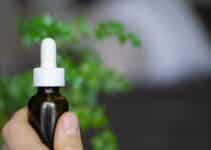I've delved into the intriguing relationship between cannabidiol (CBD) and testosterone levels. Emerging research suggests that CBD may have an impact on hormonal balance, potentially affecting testosterone regulation. Through analyzing clinical studies and mechanisms of action, this article explores the potential implications of CBD use for testosterone levels. Let's dive into the evidence to understand why cannabidiol might influence testosterone in users.
Key Takeaways
- CBD may disrupt the balance of hormones in the endocrine system, including testosterone.
- CBD may positively impact muscle growth, which is linked to testosterone levels.
- CBD can influence testosterone production by affecting cannabinoid receptors in the endocrine system.
- Further research is needed to fully understand the relationship between CBD, testosterone, fertility, and muscle growth.
Research on CBD and Testosterone Levels
How exactly does CBD impact testosterone levels in the body? Research on CBD and testosterone levels is still in its infancy, but some studies suggest that CBD may have an influence. One study published in the Journal of Clinical Investigation found that CBD could affect testosterone levels by impacting fertility. The study indicated that CBD could potentially reduce fertility by disrupting the delicate balance of hormones in the endocrine system, including testosterone. On the other hand, there is evidence to suggest that CBD may positively impact muscle growth, which is intricately linked with testosterone levels. A study in the European Journal of Pain showed that CBD may help alleviate pain and promote muscle recovery, indirectly supporting muscle growth. However, more research is needed to draw concrete conclusions about the relationship between CBD, testosterone, fertility, and muscle growth.
Effects of CBD on Hormonal Balance
CBD affects hormonal balance by interacting with the endocannabinoid system in the body. The endocannabinoid system plays a crucial role in hormonal regulation, and CBD's interaction with this system can have various effects on hormone levels. Research suggests that CBD may influence testosterone production by affecting cannabinoid receptors in the endocrine system. For instance, a study published in the Journal of Clinical Investigation found that CBD can influence the activity of these receptors, potentially impacting hormone secretion. Additionally, CBD has been shown to modulate the release of cortisol, a hormone involved in stress response and metabolism. These findings indicate that CBD has the potential to exert regulatory effects on hormonal balance through its interaction with the endocannabinoid system, although further research is needed to fully understand the mechanisms involved.
Mechanisms of Testosterone Regulation by CBD
Building upon the previous discussion, my research reveals that a quantifiable impact of CBD on testosterone levels is attributed to its interaction with cannabinoid receptors in the endocrine system. This interaction influences the regulation of androgen levels, leading to potential effects on testosterone. The mechanisms through which CBD affects testosterone levels involve complex signaling pathways and molecular interactions within the endocrine system. Specifically, CBD may modulate the activity of the hypothalamic-pituitary-gonadal (HPG) axis, which plays a crucial role in testosterone production and regulation. Furthermore, CBD's influence on endocrine function, including the release of hormones such as luteinizing hormone and follicle-stimulating hormone, can indirectly impact testosterone levels. Additionally, CBD's potential anti-inflammatory and antioxidant properties may also contribute to its regulatory effects on testosterone within the endocrine system.
Clinical Studies on CBD and Testosterone
Continuing from the previous subtopic, I frequently encounter clinical studies that investigate the relationship between CBD and testosterone levels in human subjects. These studies delve into the potential impact of CBD on endocrine function, particularly in relation to testosterone production. Research suggests that CBD may influence testosterone levels through its interaction with the endocannabinoid system, which plays a crucial role in regulating various physiological processes, including hormone production. However, the findings from these clinical studies are still preliminary and often conflicting. Some studies indicate that CBD may have a negative impact on testosterone levels, while others suggest no significant effects. Further research is needed to elucidate the precise mechanisms through which CBD may modulate testosterone production and to determine the potential implications for human health.
Potential Implications for Testosterone and CBD Users
Having explored the potential impact of CBD on testosterone levels in clinical studies, I find myself considering the practical implications for individuals using both substances. When thinking about potential side effects and long-term implications, it's crucial to consider the following:
- Monitoring testosterone levels: Regular monitoring of testosterone levels may be necessary for individuals using both CBD and testosterone-based medications to ensure that levels remain within a healthy range.
- Consulting healthcare professionals: It is advisable for individuals using both CBD and testosterone to consult healthcare professionals for personalized advice and to discuss any potential interactions or side effects.
- Lifestyle considerations: Long-term implications may include the need to consider lifestyle factors such as diet, exercise, and stress management, as these can influence testosterone levels and the effects of CBD.
These considerations are essential for individuals using both CBD and testosterone, as they can help mitigate potential risks and optimize the benefits of these substances.
Frequently Asked Questions
Can CBD Be Used as a Natural Testosterone Booster?
I've found that CBD can potentially support exercise and diet, which may indirectly influence testosterone levels. Regular exercise and a balanced diet are known to positively impact testosterone production. CBD's potential to promote recovery and reduce inflammation post-exercise could support exercise routines, indirectly benefiting testosterone levels. Additionally, CBD's potential to impact stress and anxiety levels could also indirectly influence testosterone production. However, direct evidence on CBD as a natural testosterone booster is limited and requires further research.
Are There Any Potential Negative Side Effects of Using CBD for Testosterone Levels?
Using CBD for testosterone levels raises potential risks, including long-term effects. Research suggests that CBD may impact hormone levels, potentially affecting testosterone. However, more studies are needed to fully understand the relationship. It's important to consider potential side effects and consult with a healthcare professional before using CBD for testosterone regulation. Long-term effects of CBD on hormone levels should be carefully monitored to assess its overall impact on testosterone levels.
How Does the Method of CBD Consumption (E.G. Oil, Edibles, Vaping) Affect Its Impact on Testosterone Levels?
When considering the impact of CBD consumption on hormone regulation, various methods, such as oil, edibles, and vaping, may influence its potential interactions with testosterone levels. Understanding how these consumption methods affect the body's ability to absorb and utilize CBD is crucial in assessing their impact on hormone regulation. Researching the specific effects of each consumption method on testosterone levels can provide valuable insights into the overall relationship between CBD and hormone balance.
Are There Any Specific Dosages of CBD Recommended for Regulating Testosterone Levels?
I haven't come across specific CBD dosages recommended for regulating testosterone levels. Research on CBD's effects on testosterone regulation is still inconclusive. While some studies suggest potential benefits, like reducing stress and inflammation, others indicate possible side effects. It's important to consult with a healthcare professional before using CBD for testosterone regulation. Individual responses to CBD dosages can vary, and it's crucial to consider potential interactions with other medications.
Can CBD Be Used in Conjunction With Other Supplements or Medications for Testosterone Regulation?
Using CBD in conjunction with other supplements or medications for testosterone regulation may have potential interactions. It's important to consider the effectiveness and safety of combining these treatments. Dosage recommendations and long-term effects should be carefully evaluated when considering combination therapy. Consulting with a healthcare professional is crucial to ensure safe and effective use of CBD alongside other testosterone-regulating supplements or medications.
Conclusion
In conclusion, while there is some evidence to suggest that cannabidiol (CBD) may affect testosterone levels, more research is needed to fully understand the mechanisms and implications. It is important for individuals using CBD to be aware of potential hormonal effects and to consult with a healthcare professional. As the knowledge in this area continues to grow, it will be important to consider the potential impact of CBD on hormonal balance and overall health.




